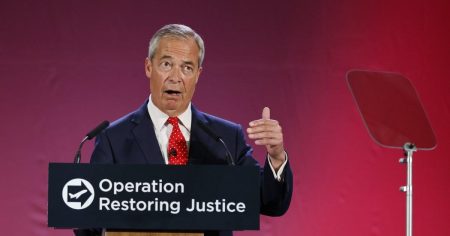The recent ban on puberty blockers for transgender youth under 18 in the UK has sparked controversy and distress among affected families. Health Secretary Wes Streeting justified the ban citing “unacceptable” safety risks and the need to follow expert advice, referencing the Cass Review which highlighted the lack of robust evidence supporting the use of these medications for gender dysphoria and emphasized potential risks. The decision followed a temporary ban already in place and limits treatment options for trans adolescents to therapy, counseling, and hormone therapy under strict criteria. The ban excludes the use of puberty blockers for precocious puberty and other conditions in adults.
Prior to the ban’s implementation, Streeting met with a group of transgender children, their parents, and LGBTQ+ youth organization representatives. According to one parent, “Hannah,” who attended the meeting, the atmosphere was emotionally charged, with several teenagers expressing their despair and fear over the potential ban. Some shared experiences of self-harm and suicidal ideation linked to being denied puberty blockers, while others emphasized the positive impact the medication had on their well-being. Hannah described Streeting as appearing “stony-faced” throughout the meeting, even when confronted with the children’s emotional pleas. She also presented him with letters from families of trans youth and a research paper detailing the negative effects of the temporary ban.
The research paper, authored by Dr. Natacha Kennedy, analyzed surveys of parents and guardians of trans youth following the initial temporary ban. The analysis revealed significant distress and anxiety among young people denied access to puberty blockers, impacting their overall well-being. Conversely, those who had received the medication before the ban reported positive experiences, including feelings of hope, happiness, and improved social interactions. This stark contrast highlighted the perceived benefits of the treatment for some trans youth.
The decision to implement the ban despite the emotional testimonies and research presented has drawn criticism from advocates for transgender healthcare. Susie Green, co-founder of the trans healthcare provider Anne, accused Streeting of prioritizing a political agenda over the well-being of trans youth. She argued that the ban represents state-sanctioned harm and that the consequences will ultimately fall upon Streeting. Critics of puberty blockers, however, support the ban, echoing the Cass Review’s concerns about the lack of evidence and potential risks associated with these medications. They emphasize the need for more research and stricter safeguards before considering their use in young people.
In response to the ban, Hannah stated that her family is considering moving abroad to seek gender-affirming healthcare for her son. She believes the ban is ultimately ineffective because parents will find ways to access the necessary care for their children. This sentiment reflects the desperation felt by many families who believe puberty blockers are essential for their children’s well-being.
Streeting maintains that his decision is grounded in scientific evidence and the need to protect vulnerable young people. He points to the independent expert Commission on Human Medicines and the Cass Review as sources supporting the ban. He reiterates the intention to establish a clinical trial in the spring to gather more evidence on the use of puberty blockers in adolescents, with no limit on the number of participants. This planned trial aims to inform future decisions regarding the use of these medications. While acknowledging the important issues raised by families, Streeting emphasizes the importance of relying on robust evidence before making healthcare decisions for this vulnerable group.











